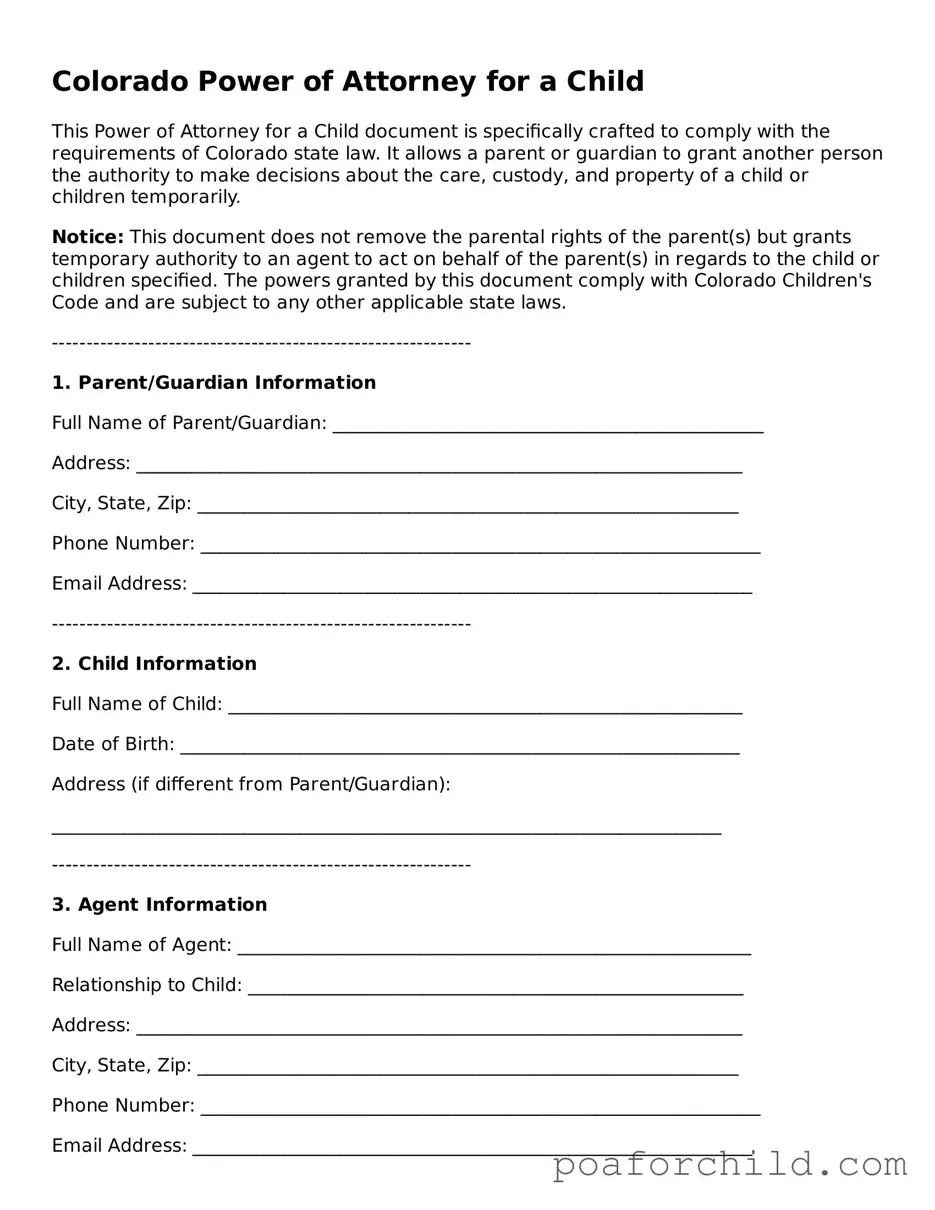Detailed Guide for Using Colorado Power of Attorney for a Child
Filling out a Power of Attorney for a Child form in Colorado is a significant step towards ensuring a child's wellbeing and care in the event that the parent or guardian is not present. This document grants a trusted adult the authority to make decisions on behalf of a minor child. The process is straightforward, but it requires careful attention to detail. Follow these steps to ensure the form is completed correctly and effectively.
- Gather all necessary information, including the full legal names and addresses of the parent or guardian, the appointed attorney-in-fact, and the child. Also, have details such as the child’s date of birth ready.
- Read through the entire form before writing anything to understand each section and what information is required.
- In the section provided, write the name(s) of the parent(s) or guardian(s) along with their contact information. This identifies who is granting the power.
- Fill in the name and contact details of the person being appointed as attorney-in-fact. This person will have the authority to make decisions for the child.
- Specify the powers being granted to the attorney-in-fact. Colorado law allows you to grant broad or limited authority, so be clear about what decisions the attorney-in-fact can make on behalf of the child.
- Indicate the time period for which the power of attorney will be effective. Colorado law permits a maximum duration of 12 months for a Power of Attorney for a Child.
- Both the parent(s) or guardian(s) and the appointed attorney-in-fact must sign the form in the presence of a notary public.
- After completing and signing the form, create copies. Hand the original to the attorney-in-fact, and keep a copy for your records.
- Notify any relevant parties, such as schools or healthcare providers, about the power of attorney arrangement. Provide them with a copy if necessary.
By following these steps, you can help ensure that the child's needs are met even when the parent or guardian can't be there. It's a proactive measure that can provide peace of mind for everyone involved. Should circumstances change, remember that the process can be revisited to adjust or revoke the power of attorney as needed.
